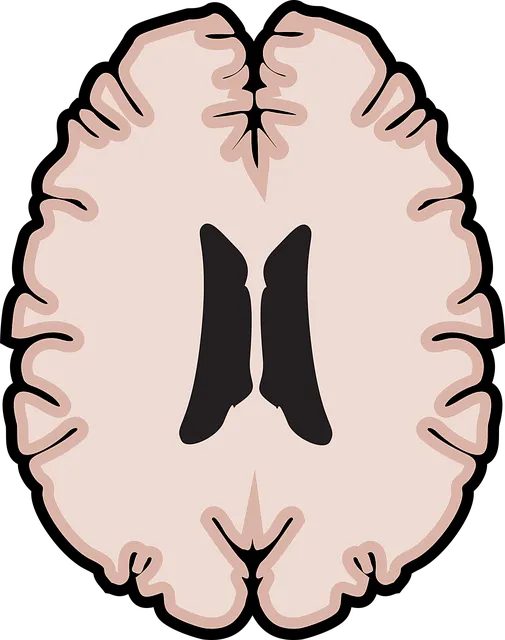Kaiser Permanente leverages its behavioral health phone number in Golden as a central hub for understanding and enhancing mental health services. By analyzing diverse datasets, including user-reported mood data from apps, they identify community needs, demographic trends, and treatment gaps. This information guides evidence-based practices, such as stress management workshops and support groups, to improve patient outcomes and foster a culture of continuous improvement in mental wellness coaching. The integration of technology ensures privacy while providing valuable insights into individual and community behavioral patterns.
Mental health data analysis is a crucial aspect of understanding and improving behavioral health services. This comprehensive guide explores the intricacies of mental health data, from collection methods using technology like the Kaiser Permanente behavioral health phone number, to advanced analysis techniques. We delve into how data interpretation can drive innovations in care delivery, enhancing patient outcomes. Discover insights that Golden moments in mental health management await those who navigate and interpret these datasets effectively.
- Understanding Mental Health Data: A Comprehensive Overview
- The Role of Technology in Collection and Analysis
- Interpreting Data to Improve Behavioral Health Services
Understanding Mental Health Data: A Comprehensive Overview

Understanding Mental Health Data is a complex yet crucial process, especially when delving into the intricate world of behavioral health. At Kaiser Permanente, for instance, the behavioral health phone number serves as a gateway to comprehensive mental health services, providing insights into community needs and guiding evidence-based practices. This data encompasses a wide range of information, from demographic trends and service utilization rates to symptoms, treatment outcomes, and patient satisfaction. A thorough analysis involves interpreting these diverse datasets to identify patterns, gaps, and emerging issues within the population served.
This process requires not just technical proficiency in data analytics but also an appreciation for Mental Health Policy Analysis and Advocacy. By examining data through a policy lens, professionals can uncover systemic barriers and opportunities for improvement, aligning practices with evidence-based strategies like Stress Management and Conflict Resolution Techniques. Ultimately, this comprehensive overview enables informed decision-making to enhance the quality and accessibility of mental health services, fostering better outcomes for individuals navigating behavioral health challenges.
The Role of Technology in Collection and Analysis

The advent of technology has revolutionized mental health data collection and analysis, offering unprecedented insights into individual and population-level behavioral patterns. Tools like mobile applications and digital platforms facilitate real-time tracking of mood, stress levels, and other psychological indicators through user-reported data. These innovations are transforming the way we understand mental health within communities, as seen in initiatives by organizations like Kaiser Permanente, which leverages its behavioral health phone number to provide guidance and support.
By integrating technology with Mental Wellness Journaling Exercises and promoting Positive Thinking practices, healthcare professionals can gain a more holistic view of patients’ well-being. This data-driven approach enables personalized interventions and allows for the identification of trends and correlations that might otherwise go unnoticed through traditional methods. The Golden rule in this context is to ensure the privacy and security of user information, making technology a powerful ally in advancing Mental Health Awareness while maintaining ethical standards.
Interpreting Data to Improve Behavioral Health Services

At Kaiser Permanente, behavioral health phone services play a pivotal role in interpreting mental health data and enhancing service delivery. By analyzing trends within their vast dataset, professionals can gain valuable insights into community needs, patient demographics, and the effectiveness of various interventions. This data-driven approach allows for the identification of at-risk populations and unmet mental health care demands, guiding the development of targeted programs like Coping Skills Development workshops and Emotional Healing Processes support groups.
Through such initiatives, Kaiser Permanente aims to foster Mental Wellness Coaching Programs that cater to diverse individual needs. By continuously evaluating patient outcomes and feedback, they ensure these programs remain relevant and effective in promoting behavioral health. This iterative process not only improves access to quality care but also fosters a culture of continuous improvement, ultimately benefiting individuals seeking support for their mental wellness journey.
Mental health data analysis is a powerful tool for transforming behavioral health services, especially with the assistance of advanced technology. By understanding and interpreting complex datasets, such as those collected by organizations like Kaiser Permanente in Golden, healthcare providers can make informed decisions to improve patient outcomes. This article has highlighted the importance of comprehensive data collection, the role of technology in streamlining analysis, and the ultimate goal of enhancing mental health services through actionable insights. With continued advancements, navigating mental health data will become increasingly efficient, enabling better access to care for all.






